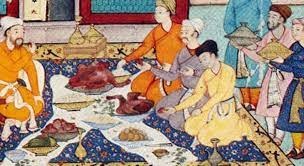The philosopher and martyr Bhagat Singh
In honor of the many heroes who gave their lives in the service of the independence fight, March 23 is recognized as “Martyrdom Day.” Bhagat Singh, Rajguru, and Sukhdev kissed the dead in Central Jail in Lahore on this day. Future generations will remember their sacrifice and be proud that brave people like them gave their lives in defense of the nation. Leaders of all colors decorate the victims’ sculptures and pay tribute to them, but sadly, no one assesses the reasons for their sacrifices.

Without a doubt, Bhagat Singh gained notoriety when he and his allies exacted revenge for the horrific lathi blows inflicted on Lala Lajpat Rai, who had led a parade in Lahore to protest the Simon Commission’s presence. Additionally, on April 8, 1929, Bhagat Singh and Batukeshwar Dutt detonated two bombs within the Central Legislative Assembly, stirring up trouble in the otherwise tranquil seas of British rule. Pattabhi Sitaramayya, a historian of the Congress, said of the hanging on March 23, 1931, “It is no exaggeration to say that at that moment, Bhagat Singh’s name was as widely known all over India and was as popular as Gandhi’s.”
But some of Bhagat Singh’s qualities have been overlooked. His worry about untouchability in the then-existing social structure is one of them. Shortly after the 1923 Congress session at Kakinada, Andhra Pradesh, Bhagat Singh penned an essay titled “The Problem of Untouchability.” The Punjabi publication “Kirti,” which is published out of Amritsar, printed it first.
In a nation of 30 crore people, he said, “24 crore think that a little touch from 6 crore untouchables would cause them to lose their religious purity. If untouchables begin taking water out of the wells, the gods will be distressed by their admission into the temples, and the wells will get soiled.
“Vedas are beyond the reach of untouchables,” Bhagat Singh went on. They are not permitted to wear the Brahmins’ beloved holy thread around their necks.
“Notable Congress leader Pt Madan Mohan Malviya will be garlanded by the untouchables, but he won’t become pure until he bathes along with his clothes,” said the great hero. He issued a strong plea for the Harijans to awaken from their protracted sleep, band together, and defend their rights. It’s amazing that a 16- or 17-year-old youngster could care so much about the mistreatment of untouchables.
Second, for a competition in 1923, Bhagat Singh prepared an article titled “The Problem of Punjab’s Language and Script.” He made the argument in this article that great literature can only be guaranteed by a rich language. Only this kind of discourse can inspire a spirit of revolt. He remarked, “Without the writings of Voltaire and Rousseau, the French Revolution would never have happened. The Russian Revolution would not have happened if Tolstoy and Maxim Gorky had not dedicated years of their life to producing new literature.
Bhagat Singh too had a strong willingness to make sacrifices. He thwarted two efforts to save him from the gallows because his goal was to expose his viewpoint to the public and face a protracted legal trial in order to awaken the nation’s young. He carried out this action from April 1929 to March 1931.
I felt it was fitting to share this aspect of his thinking as we prepare to commemorate “Martyrdom Day,” especially in light of the persistence of linguistic barriers and untouchability in our nation of extreme social and economic inequality.







